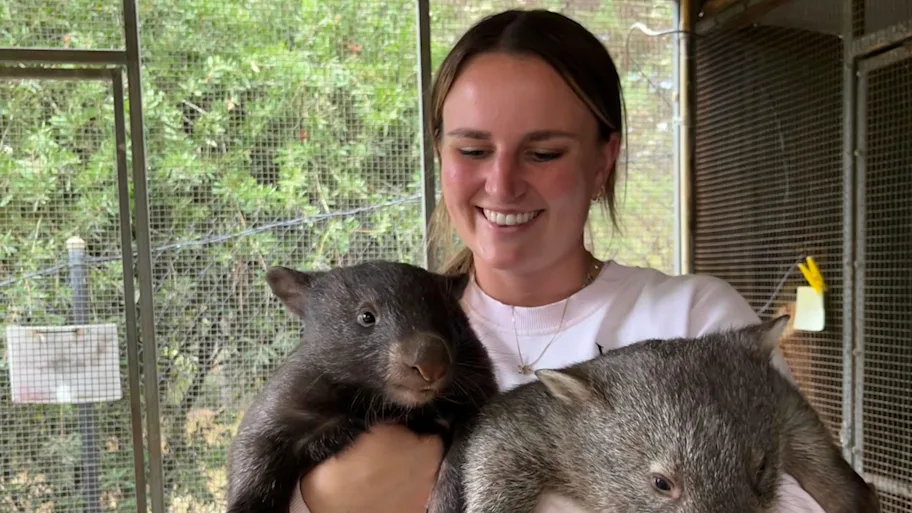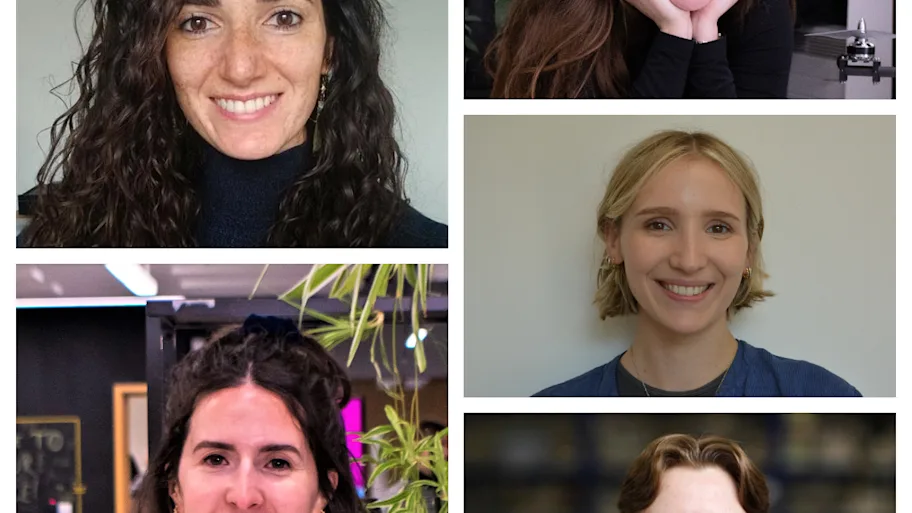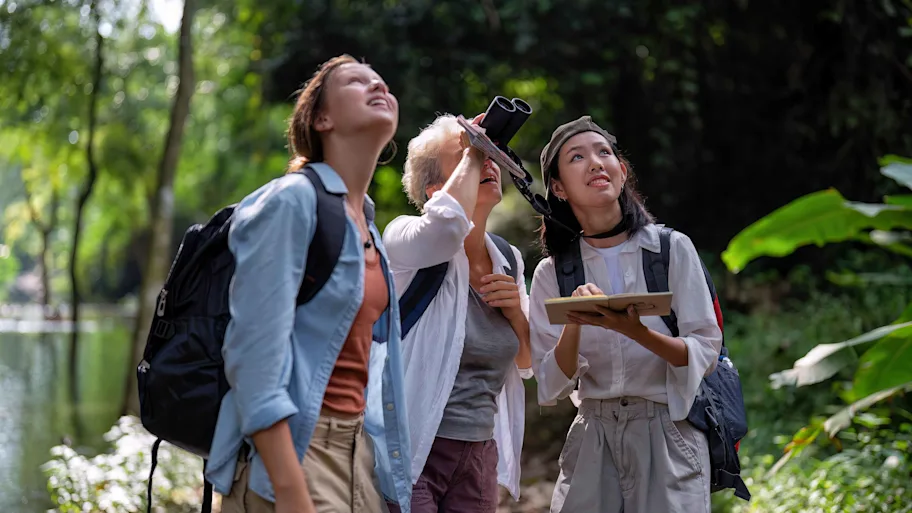
- Science news
- Frontiers news
- Anthonia Andoh-Odoom - The science of safety and the future of food
Anthonia Andoh-Odoom - The science of safety and the future of food
Author: Charlotte Mannell
As the world marks World Hunger Day on May 28, 2025, attention turns not only to the millions of people facing food insecurity but also to those working tirelessly behind the scenes to find lasting solutions. I spoke with Dr Anthonia Andoh-Odoom about her research on food safety, as well as her inspirations and hopes for the future of food science. Day-to-day, Anthonia works as a quality manager at the CSIR-Food Research Institute in Accra, Ghana, after having completed both an MPhil focusing on microbiology and electronic sterilization techniques at University of Strathclyde, Scotland, and most recently a PhD in food science from the University of Ghana.

With a PhD focused on microbiological food safety, Anthonia’s research began by examining the bacterial diversity found on a widely consumed fish in Ghana, the Oreochromis niloticus, more commonly known as tilapia. Her goal? To not only identify harmful bacteria but to explore how indigenous solutions like essential oils from local spices hwentia and esoro wisa could combat microbial contamination. “I wanted to explore if these essential oils had antibacterial potential,” she explains. “And I found that hwentia (Xylopia aethiopica) was particularly effective at inhibiting bacterial growth.”
While interventions like these are promising, Anthonia acknowledges the limitations of scaling such methods. “The oils are hard to extract in large amounts, and the flavor can be a bit overwhelming,” she laughs. Her research forms part of a broader movement to localize solutions to food safety—one that's increasingly vital in the face of climate change and growing food insecurity.
World Hunger Day 2025 reminds us that food security goes beyond availability—it also requires safety. As Anthonia points out, “Food that isn’t safe can lead to foodborne illness, affecting not only individual health but economic productivity.”
Her work with the SmallFishFood project is one example of putting knowledge into practice. In Ghana, many women dry small fish on the bare ground, exposing them to contaminants. “We trained women fish processors on hygienic practices and introduced raised racks for drying fish off the ground,” she says. These simple interventions drastically reduce contamination and improve shelf life. Anthonia also explores nutritional interventions, such as turning dried fish into flour that can be added to everyday foods like donuts, biscuits, and the spicy condiment shito. This not only boosts protein intake in low-income communities but also keeps local diets both culturally relevant and affordable.
Innovation doesn’t stop there. Anthonia has also contributed to the HealthyFoodAfrica initiative, a research and innovation project aimed at transforming food systems in ten African cities, including Accra and Tamale, to become more sustainable, equitable, and resilient. As part of a multidisciplinary team of scientists, she works to advance sustainable food systems, improve fish processing practices, enhance nutrition, and disseminate key research findings. These efforts specifically address critical challenges within the Ghanaian food value chain, focusing on innovative solutions and capacity building to benefit communities, stakeholders, and the broader food system. Key recommendations from this work aim to improve food production, safety, and nutritional outcomes. Anthonia played a direct role in developing a fish safety training manual. The primary objectives of the manual were to:
Educate fish farmers, handlers, and consumers on the importance of fish safety and its relevance to public health.
Familiarize key stakeholders in the fish value chain with common hazards and risks associated with fish consumption.
Provide practical guidance on implementing fish safety practices tailored to different roles within the industry.
Equip trainees with the knowledge and skills needed to identify, prevent, and address potential safety issues related to fish and seafood products.
Ensuring fish safety is essential for public health and consumer trust in freshwater and seafood products. This manual provides comprehensive guidance and best practices to minimize risks associated with handling, storage, and preparation, helping to prevent contamination and reduce foodborne illnesses when properly followed.
Beyond field projects, Anthonia oversees the implementation and continual improvement of the Quality Management System in an ISO/IEC 17025 accredited food analysis laboratory, helping food producers test their products under ISO 17025 standards. Her role ensures that processed foods meet safety benchmarks before reaching consumers—a step that may be overlooked by informal producers, usually due to lack of resources or knowledge.
"Sometimes all it takes is guidance,” she recalls, citing the case of a juice producer whose contamination issues stemmed from inadequately washed ginger. “It’s about training, not just technology.”

With climate change shifting food availability and rising poverty worsening hunger, her message is clear: the fight against hunger must include safe food systems. As she puts it, “We need climate-smart agriculture, genetic innovations, and local knowledge—used together—to ensure that everyone has not only enough, but food that is safe to eat.” As we mark World Hunger Day, stories like Anthonia’s remind us that science and compassion can combine powerfully to nourish the world.
Frontiers is a signatory of the United Nations Publishers Compact. This interview has been published in support of United Nations Sustainable Development Goal 2: End hunger, achieve food security and improved nutrition and promote sustainable agriculture and United Nations Sustainability Development Goal 5: Achieve gender equality and empower all women and girls.






